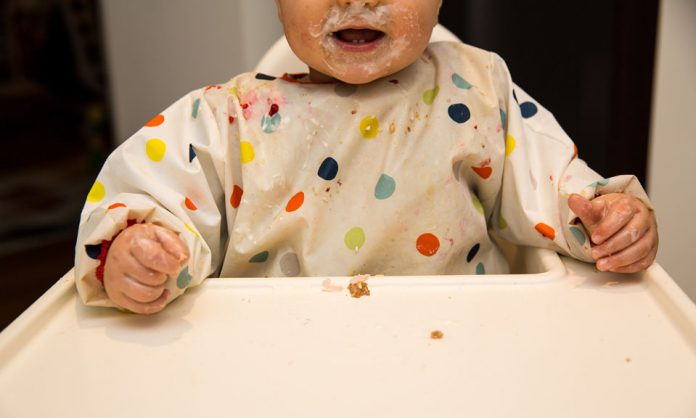By Katerina Tiapula
Teaching your child to eat independently is more than just the physical aspect of bringing the food to the mouth: although this is quite a feat for a little one.
Eating is a physical, social and emotional experience for children. They are fed from birth by the mother, father and caretakers. They are cooed at. They are admired and there is 100% attention given to the child while being fed.
When to start independent eating is a good question. They should start by self feeding themselves some parts of their meal as soon as they can manage the spoon or simply holding the food and gradually increase. They should be allowed to try to manage the motor skills first with the grasping of the spoon and maneuvering to the mouth.
According to pediatrician Dr. Ong Woon Hong from Aglow Baby & Child Specialist Clinic “Generally, you can let a child feed himself if he can sit steadily and hold a utensil and put food into his mouth albeight with spillage. Most do it about 18 months. Finger food can be given much earlier.”
Things to consider when encouraging your child to be an independent eater:
1. Your child’s teeth are not in the best place for eating many solid foods. Their front teeth come in first and it is hard to chew food with those teeth.
2. Their gums may be itchy and sore from the growing of teeth and some foods may cause them more trouble than others. Citrus acids can hurt as will hard foods.
3. Hunger is an issue. If children have to eat at mealtime, it is best that they are actually hungry. Avoid snacks and sweet drinks before meal time.
4. Children grow in spurts and just before or during a growth spurt they may eat more. Otherwise they may eat less. Do not assume that a certain amount is necessary for your child to grow properly.
Once weaned from the breast or the bottle to solid foods, the child is set alone and instructed to eat. There is little or no more attention, no cooing and no admiration. The child who has worked hard to manage the skills and has looked forward to eating alone may at this point find the motivation to eat independently diminished.
Many children discover that if they are fussy or refuse to eat the attention returns. Eating should not be confused with attention and this is hard to for parents, since the child associates eating with attention. Care must be taken at the beginning so that meal time isn’t a battle ground where children are fussy and refuse to eat. By eating together and talking, you can encourage good behavior, eating habits and model good table manners as well.
Dr Ong Woon Hong suggests: “In regards to power struggles over food, the principle is that the mum decides what to feed and when to feed, but the child decides how much he will take. Meal times are fixed and for a certain duration. If the child fusses and food is not finished by the fixed time, it is removed and the child will have to wait till the next meal time.”
Children thrive on attention and will respond positively but watch out for the bribes. The bribe of getting desert if they finish their vegetables is counter productive most of the time. The reward for eating good food is feeling good, growing strong and being happy.
Here are a few helpful mealtime tips:
- Make sure the portions are not too big. Too much food may appear overwhelming and thus diminish appetite.
- Avoid force-feeding and making food an issue.
- Be sure there is an adequate interval between meals and snacks.
- Serve liquids at the end of the meal to avoid having him fill up on these.
- Make sure the food you serve is in a form he can eat easily. (For instance, if your baby has no teeth, his foods need to be soft.)
- Serve a variety of foods.
- Serve food in a colorful and creative way. Eye appeal stimulates the appetite.
- Make mealtime pleasant. The atmosphere at the table has an enormous effect on appetite, as well as proper digestion.
- Do not engage in a power struggle over food. If they are not hungry, they will eat at the next meal.
Between 1 and 6 years old, a child should learn to eat independently and with decent enough table manners to join the adults. That is a pretty big frame of time. 5 years are allotted to learning to eat independently. Give your child a little time to grow and manage the many aspects of eating. Don’t feel defeated if by two years old, your child doesn’t eat neatly or if by four years of age your child’s manners are still less than desirable. You have time to teach your child one lesson at a time.





